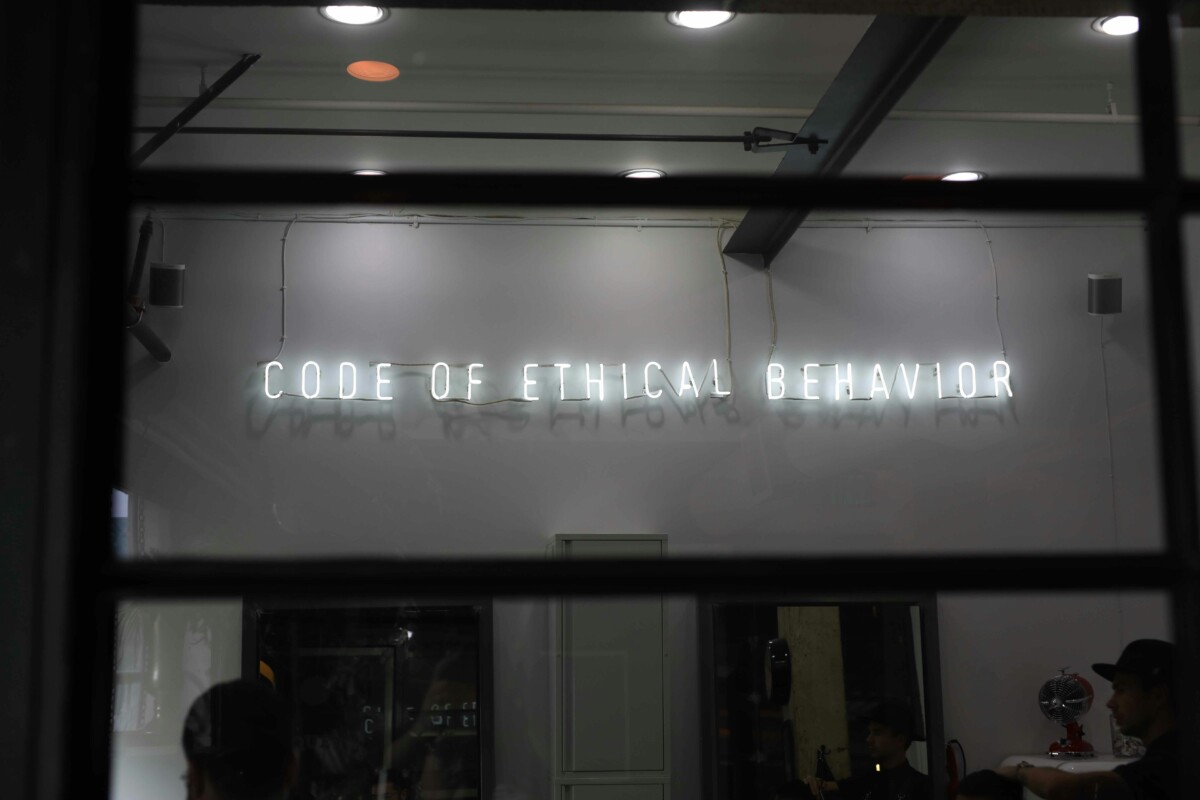A Sustainable Foundation: How One Property Firm Leads by Example
Listen to the full podcast episode on YouTube, Spotify, and Apple Podcasts.
In a world where environmental responsibility is increasingly scrutinised, sustainability is no longer an optional add-on for businesses but an integral part of corporate strategy. Tom Roundell Greene, Partner and Head of Sustainability at Carter Jonas, embodies this shift. With a career shaped by experiences in both the UK government and global real estate firm JLL, Tom brings a unique perspective to the sustainability conversation. In a recent discussion, Tom shared how he’s working to make sustainability a core business principle at Carter Jonas and offered insights into how companies can embrace long-term environmental strategies while delivering value.
Tom’s journey into sustainability began with a desire to “be part of shaping a better world.” Studying philosophy at university, he was deeply affected by world events such as 9/11, which shifted his view on global issues and inspired him to pursue a role in public service. He began his career in the UK Cabinet Office, eventually focusing on sustainable development, a field he describes as “the practical application of philosophy.” However, he soon became frustrated with the “short-term thinking” that can be a hallmark of political cycles. After more than a decade in government, he transitioned to the private sector, joining JLL, where he discovered new opportunities to effect change.
A Fresh Approach at Carter Jonas
Since joining Carter Jonas, a multidisciplinary property firm operating across the UK, Tom has continued to push the boundaries of what sustainability can mean in the business context. For Tom, sustainability is not merely a regulatory requirement but “about better ways of doing things,” a principle that is reflected in his work to embed long-term, client-focused strategies into the heart of Carter Jonas.
At Carter Jonas, Tom is leading the firm’s sustainability initiatives within a flexible business structure as an LLP (Limited Liability Partnership). Unlike publicly listed companies, LLPs are less constrained by the immediate demands of shareholders, allowing Carter Jonas to set ambitious, long-term goals that resonate with its core values. “Our aim is to be ambitious for ourselves and our stakeholders,” Tom explained, “without trying to boil the ocean in terms of compliance with standards and frameworks.” This focus allows Carter Jonas to develop a sustainability strategy tailored to the unique needs of its diverse clients, which span from country estates to commercial infrastructure projects.
Balancing Compliance and Strategic Goals
A central challenge in Tom’s role is navigating the tension between compliance-focused sustainability efforts and proactive, innovation-led approaches. While data collection and ESG (Environmental, Social, and Governance) reporting are essential for transparency, he stresses that businesses should not see these as the final goal. “If you treat sustainability as only a compliance issue, you miss its true value,” Tom noted. He believes compliance should be seen as the “minimum mandatory” rather than the ultimate aim. For Tom, sustainability should align with an organisation’s long-term goals, influencing decision-making at every level of the business.
In today’s business environment, sustainability reporting frameworks can be challenging, especially as they continue to evolve. Referring to his experience at JLL, Tom recalled, “The ESG reporting ecosystem… sets a very clear set of expectations for what good looks like.” However, he argues that while these standards are essential, they can sometimes overshadow other aspects of sustainability.
“You can spend huge amounts of time trying to finesse your data collection systems and reporting… to the detriment of actually just getting on and doing stuff.”
Collaboration and Partnerships: The Key to Success
One of Tom’s core philosophies is the importance of collaboration, both within the company and with external partners. At Carter Jonas, this has led to initiatives like a recent research collaboration with University College London, which explored the ‘green premium’ for commercial buildings. Tom believes that partnerships with academic institutions provide valuable analytical perspectives that can drive forward-thinking strategies. “Coming together with academic institutions… brings fresh perspectives and analytical rigour,” he explained.
For Tom, collaboration also extends to Carter Jonas’ clients and peers within the property industry. The firm is actively engaged in industry-wide efforts to set standards, such as the recently launched Net Zero Carbon Building Standard. By participating in these collaborative efforts, Carter Jonas can align its own operations with best practices while supporting broader industry goals. “Consistency and standards are crucial,” he remarked, highlighting the importance of shared expectations in driving change across the sector.

The Data Dilemma: A Necessary Foundation for Progress
Data is an essential component of sustainability reporting, but it can also be a double-edged sword. For Tom, the challenge lies in gathering the right data without becoming overwhelmed by the process. “Data collection is fundamental, but it’s easy to get completely hung up on it,” he observed. In his view, data should serve as a foundation for action rather than as an end in itself. At Carter Jonas, the focus is on collecting meaningful data that reflects the company’s most significant sustainability impacts.
A recent initiative involved calculating Carter Jonas’ scope 3 emissions—those associated with the goods and services it purchases. This complex undertaking was a significant step toward understanding the company’s broader environmental footprint. “We’ve now calculated the footprint associated with the goods and services that we’re buying… but that’s only day one,” Tom explained.
“You’ve got the information—now, how do you make sense of it and operationalise it to create positive change?”
Tom is also pragmatic about the challenges of influencing change within a large organisation. He recognises that resistance to change is natural and emphasises the importance of building relationships and communicating effectively. “People don’t like change; they don’t like to have to adapt necessarily,” he acknowledged. His approach is to present sustainability as a benefit, not just for the company but also for individual employees. By showing how sustainability initiatives align with both client demands and broader industry trends, he hopes to engage colleagues in the long-term vision.
Building a Sustainable Future in Real Estate
Tom’s role as Head of Sustainability at Carter Jonas highlights the unique challenges and opportunities that arise when working to embed sustainability within the real estate sector. The property industry has a profound impact on the environment, and clients are increasingly concerned about energy efficiency, emissions, and sustainable development. Tom is optimistic about the sector’s potential to make a positive impact, citing increased regulatory pressures and client demand as drivers of change. “Our clients are proactively coming and speaking to colleagues about [sustainability],” he noted, adding that Carter Jonas’ work often involves helping clients navigate these new demands.
An example of Tom’s innovative approach to sustainability is the firm’s commitment to aligning certain financial mechanisms with environmental targets. At JLL, he pioneered an initiative that linked elements of the company’s net-zero goals to borrowing rates. This approach directly connected sustainability performance with financial incentives, providing a tangible example of how sustainability can create value. Reflecting on this experience, he said,
“It has a direct financial bearing on the operation of the business, putting the right incentives in place to drive change.”
At Carter Jonas, Tom is working to replicate similar approaches that tie sustainability directly into the company’s operational framework. He believes that, over time, such initiatives can help transform not only Carter Jonas but also the industry as a whole. “We’re changing paradigms,” he remarked, underscoring his belief in the power of incremental change.
A Vision for the Future
Looking to the future, Tom hopes that his work will contribute to a broader shift in how businesses approach sustainability. He envisions a time when sustainability is fully integrated into the fabric of corporate strategy, where it is seen not as an obligation but as a fundamental value. His approach, rooted in long-term thinking and collaboration, offers a roadmap for other organisations seeking to follow a similar path.
When asked about the legacy he hopes to leave, Tom’s response is characteristically humble. “I’m not trying to suggest I’m changing the world,” he said, “but I like to think that all of these things… are contributing to creating this change.” His words capture the essence of his work: small, meaningful steps toward a sustainable future that, when taken together, form a powerful collective movement.
Conclusion
Tom Roundell Greene’s work at Carter Jonas offers a compelling example of how sustainability can be woven into the core of business strategy. From data collection and compliance to strategic partnerships and long-term goal-setting, his approach demonstrates the potential for sustainability to create value not only for the company but also for its clients and stakeholders. As he puts it, “Making progress with sustainability is not about having all the answers but about aligning decisions with our core purpose and allowing space for experimentation.”
In an industry often characterised by short-termism and compliance-driven approaches, Tom’s vision stands out. By embracing sustainability as a core value, Carter Jonas is setting a new standard in the property sector—a model of how companies can build a sustainable future by doing things better, together.
Sponsored by...
The Mark of Editorial Integrity
👉 Learn how truMRK helps organisations strengthen the credibility of their sustainability reports.
Want to be a guest on our show?
Contact Us.
The Responsible Edge Podcast
Queensgate House
48 Queen Street
Exeter
Devon
EX4 3SR
Recognition.
Subscribe Now.
Subscribe below to receive a monthly email featuring all new episodes of The Responsible Edge Podcast.
© 2025. The Responsible Edge Podcast. All rights reserved.
The Responsible Edge Podcast® is a registered trademark.
Sponsored by truMRK
© 2025. The Responsible Edge Podcast





